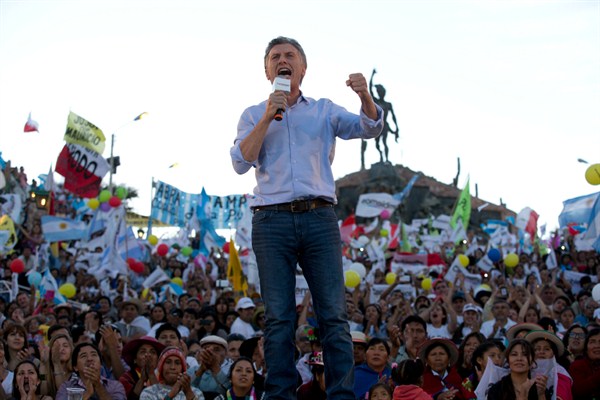Argentina’s presidential vote this Sunday, Nov. 22, is one of its most consequential elections in recent history. After 12 years of Kirchnerismo, the next president will bring change to a country in need of an economic and political jolt. That much is certain. But how swiftly and how deeply will any transformations take place? That will depend on Sunday’s vote.
In the days leading up to the first round of voting on Oct. 25, it seemed a fait accompli that President Cristina Fernandez de Kirchner’s electoral alliance, the Front for Victory, or FPV, was in the driver’s seat to hold onto power. In the August primary, an open and mandatory vote seen as a bellwether for first-round results, Daniel Scioli, the FPV candidate and currently governor of Buenos Aires province, outperformed the opposition Cambiemos coalition’s candidate, Mauricio Macri, the mayor of Buenos Aires, by over 8 percentage points. Momentum was so much on Scioli’s side that he even decided to skip Argentina’s first-ever presidential debate three weeks before the primary vote, thinking he had nothing to gain by discussing policy head-on with opponents trailing him.
Opinion polls corroborated this logic. Most predicted he would trounce Macri by at least 10 percent and beat the third candidate, Sergio Massa, by a slightly larger margin. The inevitability of a resounding victory led to the slight possibility that Scioli could win either the 45 percent of the vote outright, or the 40 percent with a 10 percent cushion over Macri or Massa, to avoid a run-off.

